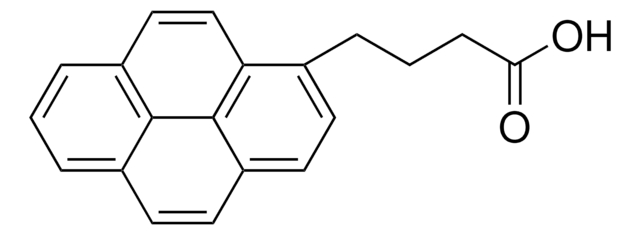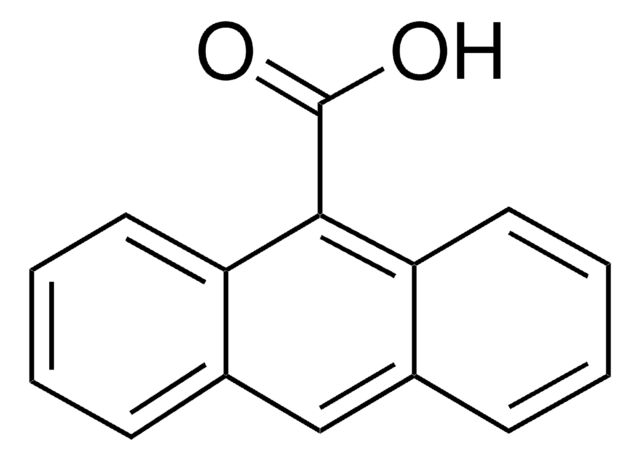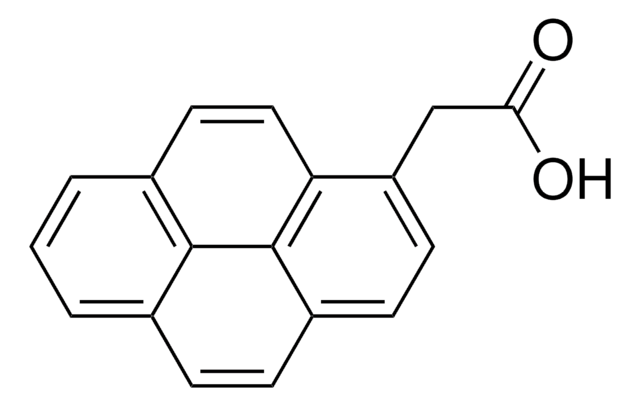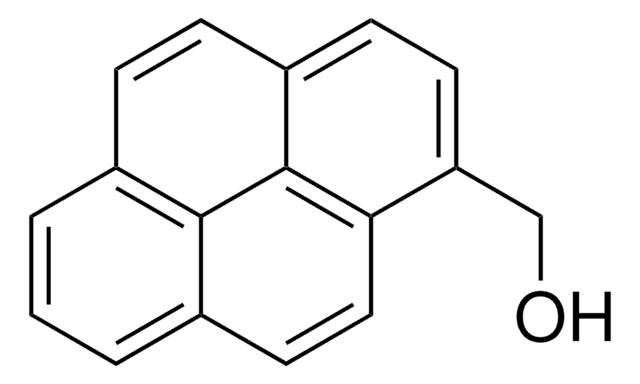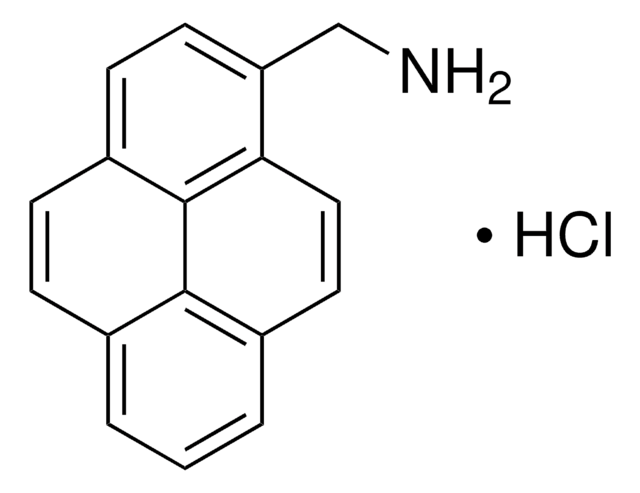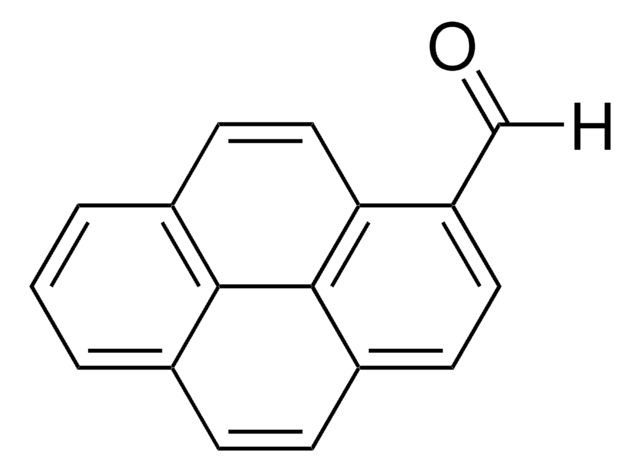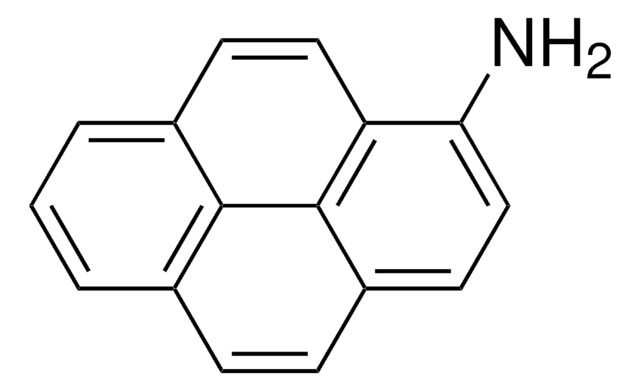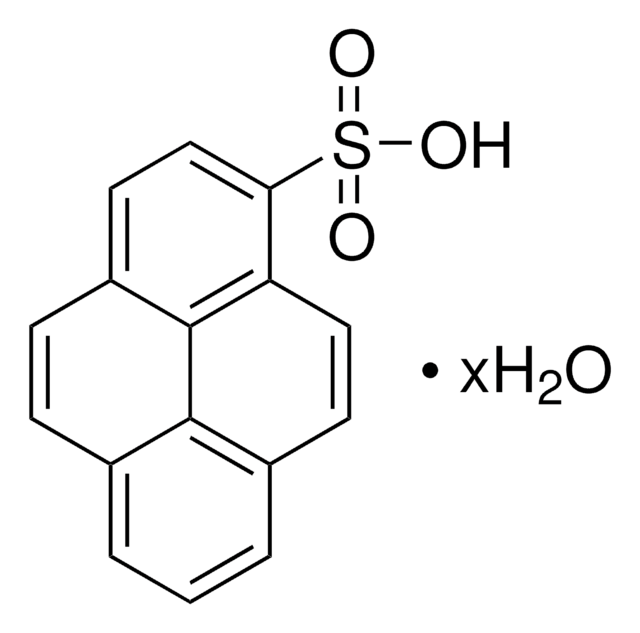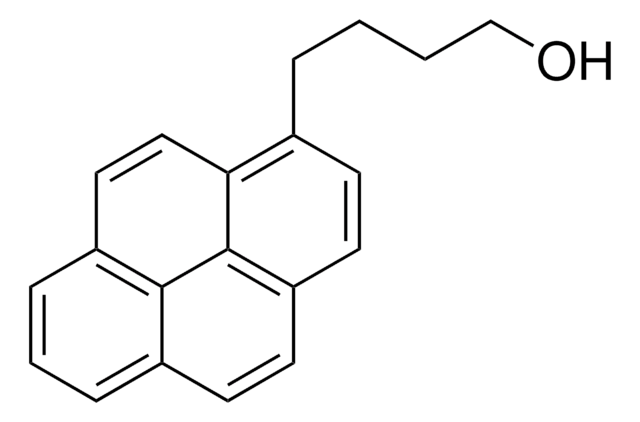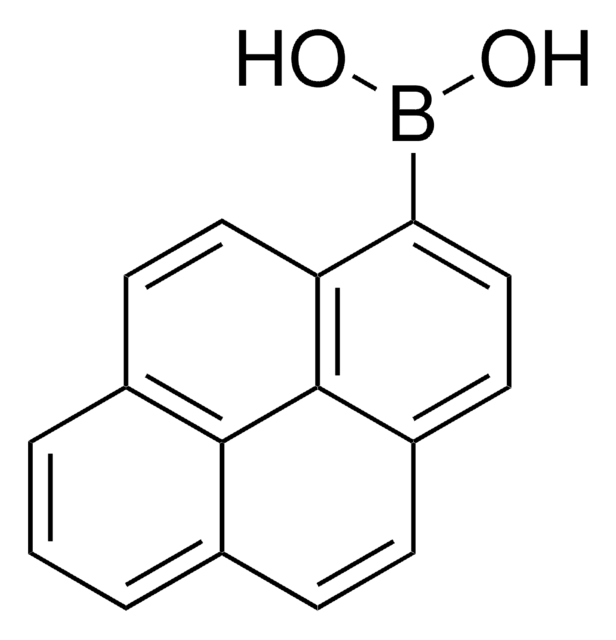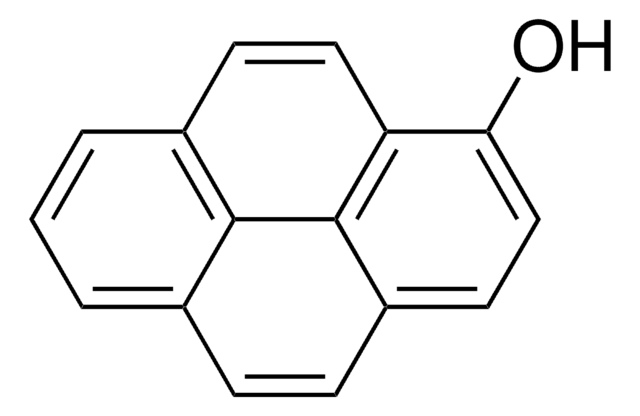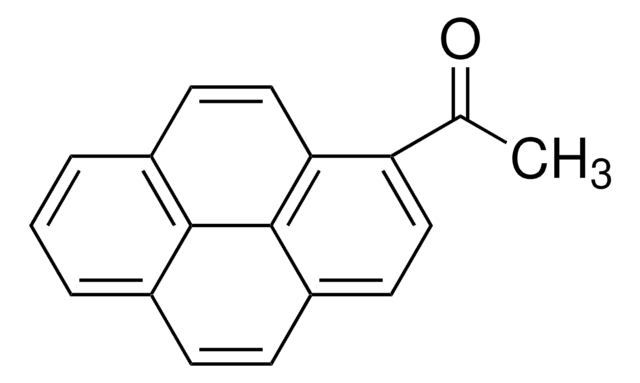391581
1-Pyrenecarboxylic acid
97%
Se connecterpour consulter vos tarifs contractuels et ceux de votre entreprise/organisme
About This Item
Formule empirique (notation de Hill):
C17H10O2
Numéro CAS:
Poids moléculaire :
246.26
Numéro Beilstein :
2375854
Numéro MDL:
Code UNSPSC :
12352103
ID de substance PubChem :
Nomenclature NACRES :
NA.23
Produits recommandés
Niveau de qualité
Pureté
97%
Pf
270-272 °C (lit.)
Chaîne SMILES
OC(=O)c1ccc2ccc3cccc4ccc1c2c34
InChI
1S/C17H10O2/c18-17(19)14-9-7-12-5-4-10-2-1-3-11-6-8-13(14)16(12)15(10)11/h1-9H,(H,18,19)
Clé InChI
HYISVWRHTUCNCS-UHFFFAOYSA-N
Vous recherchez des produits similaires ? Visite Guide de comparaison des produits
Description générale
1-Pyrenecarboxylic acid (PCA) is a polyaromatic derivative that has an amphiphilic characteristic. It is a fluorophore that shows absorption spectra in the UV region. PCA has a carboxylic acid group that attaches with pyrene nucleus. It can be used as a sensitizer that facilitates the electron transport from one medium to another.
Application
Functionalized pyrene for synthesis.
PCA can be used in the surface modification of graphene and carbon nanotubes (CNTs), which can further be used for a variety of electronic applications.
Code de la classe de stockage
11 - Combustible Solids
Classe de danger pour l'eau (WGK)
WGK 3
Point d'éclair (°F)
Not applicable
Point d'éclair (°C)
Not applicable
Équipement de protection individuelle
Eyeshields, Gloves, type N95 (US)
Faites votre choix parmi les versions les plus récentes :
Déjà en possession de ce produit ?
Retrouvez la documentation relative aux produits que vous avez récemment achetés dans la Bibliothèque de documents.
Les clients ont également consulté
S Mocanu et al.
Physical chemistry chemical physics : PCCP, 19(40), 27839-27847 (2017-10-11)
Electron paramagnetic resonance (EPR) and fluorescence spectroscopies provide molecular-level insights on the interaction of paramagnetic and fluorescent species with the microenvironment. A series of dual molecular probes bearing fluorescent and paramagnetic moieties linked by flexible short polyether chains have been
Haodong Liu et al.
Advanced materials (Deerfield Beach, Fla.), 33(8), e2004782-e2004782 (2021-01-16)
The revolutionary and pioneering advancements of flexible electronics provide the boundless potential to become one of the leading trends in the exploitation of wearable devices and electronic skin. Working as substantial intermediates for the collection of external mechanical signals, flexible
Noncovalent functionalization as an alternative to oxidative acid treatment of single wall carbon nanotubes with applications for polymer composites
Simmons TJ, et al.
ACS Nano, 3(4), 865-870 (2009)
El Hadji Mamour Sakho et al.
Materials science & engineering. C, Materials for biological applications, 95, 43-48 (2018-12-24)
We herein report the synthesis of MFe2O4 (M = Mn, Mg)/reduced graphene oxide (MFe2O4/RGO) through a simple and novel pressure cooker assisted solvothermal method. The structure and morphology of the as-prepared materials were investigated using X-ray diffraction (XRD), transmission electron microscopic (TEM)
Tunable graphene-silicon heterojunctions for ultrasensitive photodetection
An X, et al.
Nano Letters, 13(3), 909-916 (2013)
Notre équipe de scientifiques dispose d'une expérience dans tous les secteurs de la recherche, notamment en sciences de la vie, science des matériaux, synthèse chimique, chromatographie, analyse et dans de nombreux autres domaines..
Contacter notre Service technique